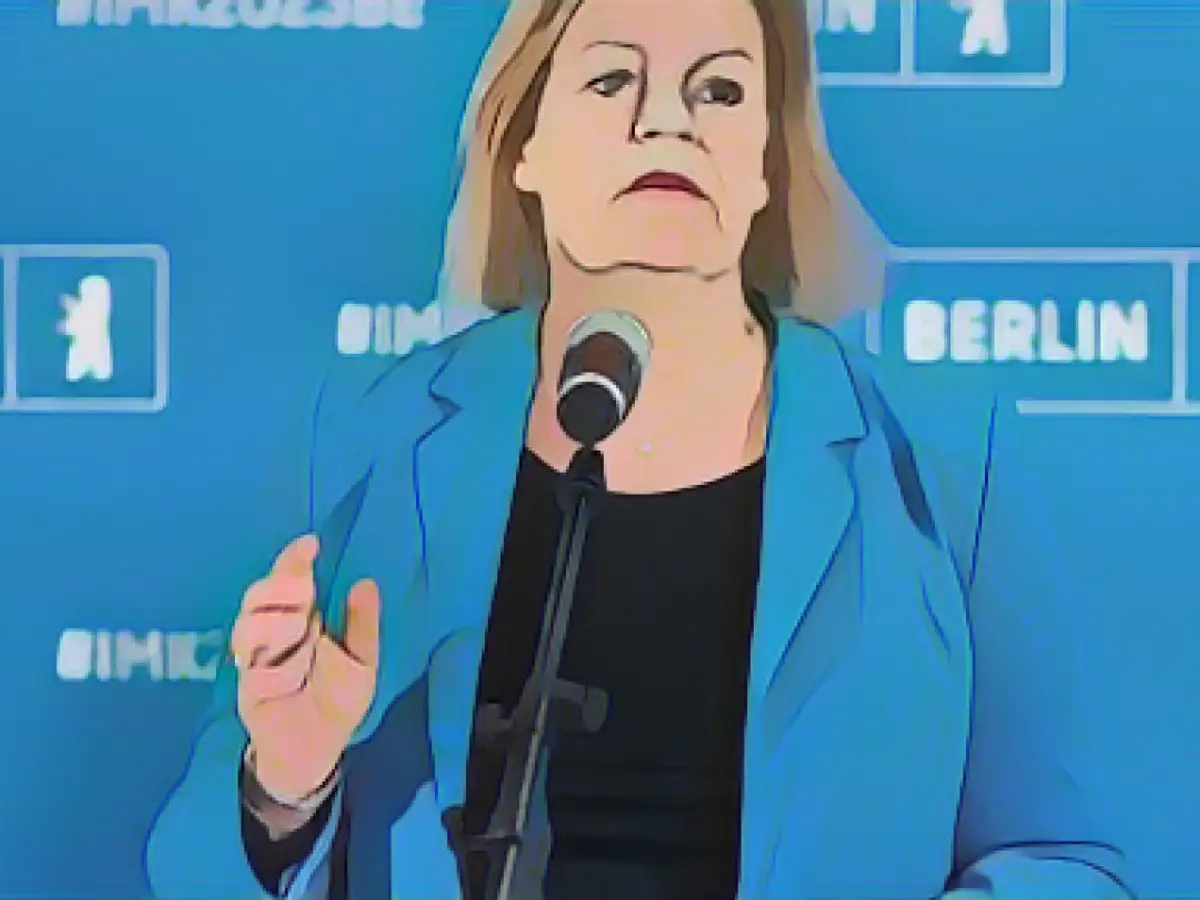Title: Germany Extends Border Controls: A Tough Stance Against Irregular Migration
Federal Interior Minister Nancy Faeser has announced an extension of border controls with Poland, the Czech Republic, and Switzerland beyond December 15 for at least two months. This decision comes following the success of the measures in curbing irregular migration and preventing the brutal actions of people smugglers.
According to Faeser, stationary and mobile controls are vital in holding back the tide of unauthorized entries into Germany and easing the burden on local authorities. Since introducing the controls on October 16, around 3,300 unauthorized entries have been detected, and 1,100 have been prevented. Faeser highlighted that these measures are proving effective and warrant continuation.
Andreas Roßkopf, responsible for the federal police at the police union, reminded us that police actions cannot solely drive down asylum seeker numbers or prevent asylum applications. He proposed considering whether police resources would be more useful in securing cities and addressing the asylum issue within a EU framework rather than at the border.
Meanwhile, the security situation in Germany remains delicate. The Czech Republic and Poland are among the neighboring countries whose border controls have been extended by Faeser. Switzerlands border with Germany is also under close scrutiny due to the high number of migrants attempting to cross illegaly, and both nations are working together to strengthen border control measures.
Central Concerns and Impacts
The primary reasons behind the extension of border controls include addressing irregular migration and ensuring internal security. The measures are in compliance with EU law, which allows temporary checks at internal borders under certain conditions.
The extensions may lead to increased processing times and potential travel delays, especially during peak travel periods. As a result, travelers should ensure they have valid passports, ID cards, or the necessary documents to seamless entry.
Security measures may also include random baggage checks, and individuals without proper documentation or suspected of irregular migration may face restricted entry or denial at border checkpoints.
Critique and Diverse Reactions
Debates arise on both the EU and German levels regarding the extended controls. Critics argue that these measures may not effectively reduce illegal migration and could potentially damage the principles of the Schengen Area. Some members of the European Parliament emphasize the importance of adhering to a rechtsstaatliche approach to migration policies, ensuring fair asylum application processes and rulings.
Chancellor Olaf Scholz has criticized the opposition's call for harsher measures, including permanent border controls, stating they would contradict German and EU law, potentially weakening European unity.
Conclusion
Germany's extension of border controls is fundamentally driven by a desire to manage irregular migration and guarantee internal security while adhering to EU regulations. Despite the controversy surrounding its effectiveness, the policy remains a contentious issue, both domestically and internationally, provoking debate and panel discussions regarding the future of migration policies.








